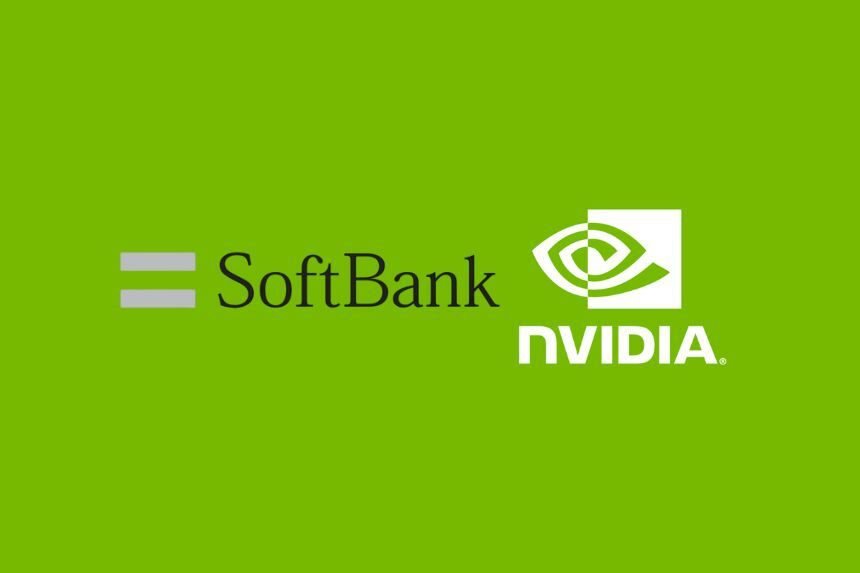Softbank Sells Nvidia Stake Deal in Review
SoftBank sells Nvidia stake in a decisive deal in November 2025, worth a total of 5.83 billion, which is a significant move by the portfolio. This action indicates the Japanese investment group sold Nvidia stocks when the AI market was booming.
The sale also points out the change of direction in the investment strategy of Masayoshi Son and underlines the rearrangements in the portfolio of Vision Fund to redirect capital to emerging technologies. Read another news on globzette.com.
Analysts observe that Nvidia’s stock price performance has performed well because of the growth in the artificial intelligence industry and the increasing demand for AI-based chips.
History of the Nvidia Investment Exit
The move by SoftBank to leave Nvidia’s 2025 investment was strategic. According to Jensen Huang, the comments on the exit of investments indicated that such a divestment is rather consistent with the strategy of long-term technological orientation among the Japanese investors.
Background of the ARM-Nvidia alliance and THG share disposal financial impact were also other factors that contributed to the decision. The shift is also indicative of how the fund was flexible to the current AI market valuation boom and the Nvidia valuation update as a semiconductor leader.
Market and Financial Impact of SoftBank Disposes of Nvidia Stake.
SoftBank disposes of Nvidia shares, which brings its quarterly profit increase due to AI assets. The divestment of Nvidia shares in the market had a considerable impact on the global outlook in the tech industry in 2025.
Nissan Restructuring Plans: Factory Sharing and Workforce Cuts
Artificial intelligence portfolio and venture capital in AI-driven startups contributed to a profit explosion by investors, and the position of Nvidia as the AI innovation core strengthened the belief in an increase in earnings in the technology sector.
Strategic portfolio reallocation plan: This will guarantee a redistribution of capital towards new technology in the long term, but with a balanced strategy in the short term despite the short-term divestiture.
Major Implications of the Deal
- Investment exit strategy 2025 is evident in Nvidia’s transaction of 5.83 billion of its assets.
- Artificial Intelligence and Vision Fund performance is indicated by changes in the portfolio.
- The surge of Nvidia shares on AI demand guarantees the power of the semiconductor industry.
- The reaction of the global market to the sell-off of the major equities suggests the trust of the investors in the development of AI.
- The change in investment approach by Masayoshi Son is proactive capital redeployment.
Conclusion
The sale of Nvidia stake by SoftBank is a historic deal in 2025, as it presents a strategic change in the portfolio during the explosion of the AI market. The Japanese investment group sells its Nvidia shares by buying the $5.83bn transaction, thus maximizing its Vision Fund portfolio.
This move fits well with the long-term technology orientation of Masayoshi Son and would see them remain exposed to new technology. The acquisition is an excellent indication of an effective investment exit strategy for 2025, as it responds to the Nvidia stock price performance and the boom in AI market valuation.
World markets responded well, which recognizes the core position of Nvidia in artificial intelligence innovation. All in all, the deal is characterized by strategic rebalancing of the portfolio, reallocation of capital in favor of AI-powered expansion, and the quality of the fund to adapt to the changing environment of semiconductor and technology supply.
FAQs
- What is the rationale behind the sale of SoftBank’s Nvidia stocks?
The sale of Nvidia shares by SoftBank was part of the strategic plan of reallocating its portfolio amid the growth of the AI market.
- What was the value of Nvidia sold by SoftBank?
This was done at a cost of 5.83billion dollars.
- How does the sale affect Nvidia stock?
The share of Nvidia jumped up with the high demand for AI and the hope of investors in its future development.
- What are the implications of this for the Vision Fund?
The capital redistribution to new technologies has given the fund a high AI exposure.
- What part did the person who made the decision, Masayoshi Son, play?
Masayoshi Son led the strategic divestment to strategize the portfolio of funds, and in line with the long-term investments in technology.








